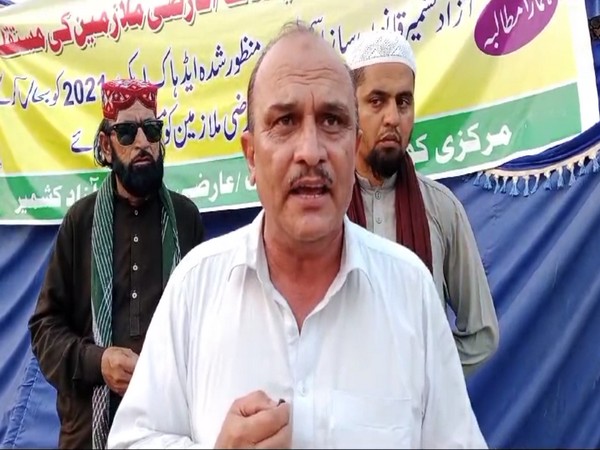Protests Intensify in PoJK as Ad-Hoc Employees Demand Permanent Employment Status
Ad-hoc employees in Pakistan-occupied Jammu and Kashmir (PoJK) have been protesting for over a week demanding permanent employment. Accusing the PoJK government of neglecting their plight for decades, around 5,000 workers face job insecurity despite years of service. The standoff highlights broader governance issues in the region.

- Country:
- PoJK
Ad-hoc employees from various government departments in Pakistan-occupied Jammu and Kashmir (PoJK) have intensified their protests outside the Central Press Club, demanding permanent employment status. The demonstrators, who have been protesting for more than a week, accuse the PoJK government of ignoring their plight for over two decades. Thousands of employees, many of whom were hired on temporary contracts since 1992, continue to work without permanent appointments, leading to widespread uncertainty and job insecurity. While Pakistan's federal government has regularized many temporary employees nationwide, the PoJK government has failed to do the same, causing significant frustration among the workers.
Manzoor Ahmed Mughal, a 56-year-old Forest Protection Officer serving for over 25 years, voiced the struggles faced by thousands of ad-hoc employees. "I was appointed in 2002 after passing the civil judge exam, but despite my qualifications, the Public Service Commission has not respected my career. Competing against candidates half my age is impossible now. We have dedicated our lives to the state, and yet, we are still forced to fight for our basic rights." Mughal's situation highlights the broader challenges faced by temporary workers in the region.
Under Farooq Haider's leadership in 1992, some ad-hoc employees were granted permanent status, but successive governments have reversed those decisions, leaving many in administrative limbo. Protester Raja Akhter Ali Khan stated, "We are not asking for favors; we are demanding justice. Despite the Muslim League Noon government passing an act in 2021 to regularize our employment, we are still fighting for our rights in 2024." Despite the escalating protests, the PoJK government has shown little response, with officials ignoring the demonstrators' grievances. Mughal urged the PoJK government to address the issue, emphasizing that their families are suffering and they are being treated with contempt.
The persistent problem of ad-hoc employment in PoJK reflects broader governance issues in the region. Temporary employees have worked without job security or benefits for decades. As the protests continue, discontent grows among the workers, who have vowed to escalate their actions if their demands are not met. The ongoing unrest underscores the need for administrative reforms and justice for long-serving workers in PoJK.
(With inputs from agencies.)
ALSO READ
Federal Court Showdown: US Government vs. TikTok in High-Stakes Legal Battle
West Bengal Government Invites Junior Doctors to Resolve RG Kar Impasse
West Bengal Government’s Final Call for Resolution in RG Kar Impasse
Kharge Accuses Modi Government of Fuel Price Exploitation
Opposition Leader Criticizes Maharashtra Government Over Unfulfilled Promises for Marathwada










